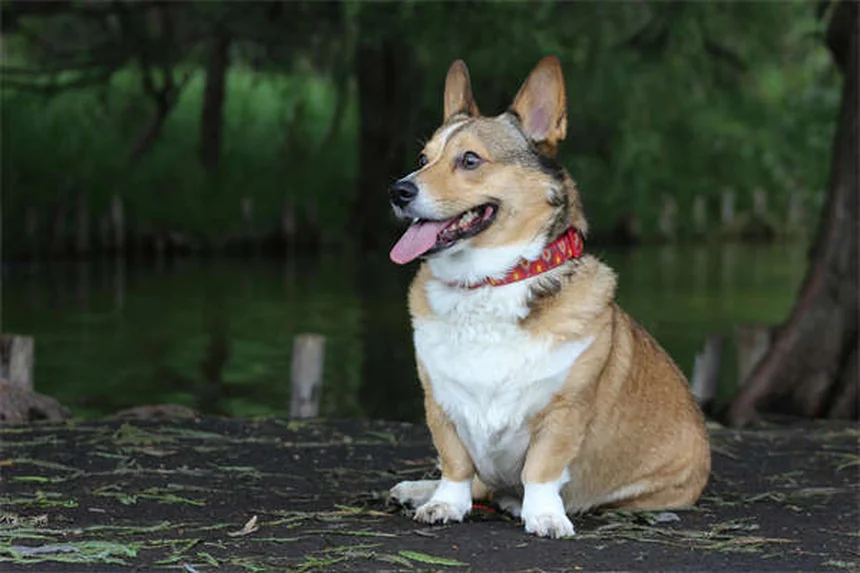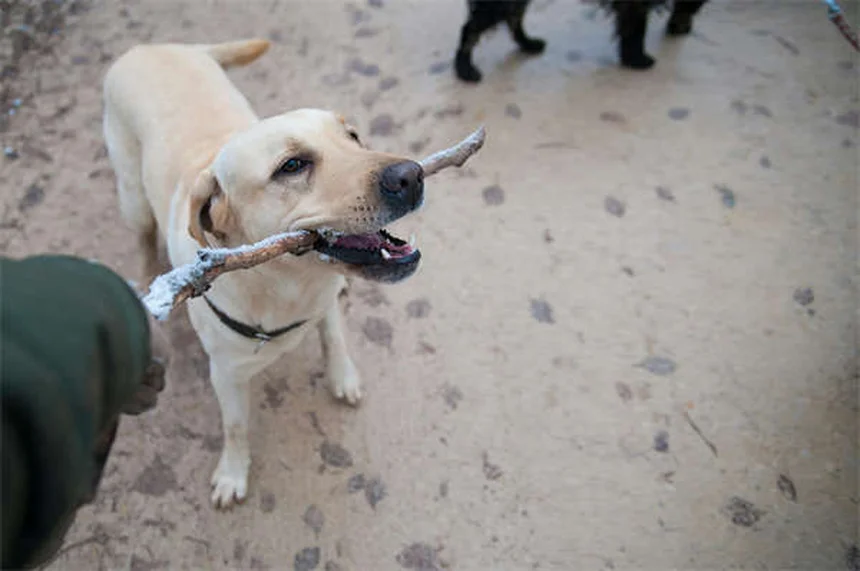Advertisement
Kitten teething can be a wild ride for both you and your furball! The answer is: yes, all kittens go through this natural process, and it typically starts around 2-4 weeks old. I've been through this with my own cats, and let me tell you - those tiny teeth are sharper than they look! Your kitten will grow 26 baby teeth first, then replace them with 30 permanent adult teeth by about 6 months. During this time, you might notice excessive chewing, drooling, or even some crankiness - totally normal! The good news? There are plenty of ways to make this transition easier for your little buddy. From frozen washcloths to special teething toys, we'll cover all the tricks that worked for me and my feline friends.
E.g. :Why Do Cats Make That Funny Face? Decoding the Flehmen Response
- 1、Welcome to the Wild World of Kitten Teething!
- 2、The Adult Tooth Revolution
- 3、Surviving the Teething Phase
- 4、Dental Care 101
- 5、Fun Facts to Impress Your Friends
- 6、The Surprising Science Behind Kitten Teeth
- 7、Beyond Teething: Lifelong Dental Health
- 8、The Social Side of Kitten Teething
- 9、Teething Through the Ages
- 10、FAQs
Welcome to the Wild World of Kitten Teething!
Hey there, fellow cat lover! If you've ever watched a kitten gnawing on your favorite shoelaces like they're gourmet treats, you've witnessed the magical (and sometimes messy) process of kitten teething. Let me walk you through this fascinating journey - I promise it's more exciting than watching paint dry!
The Toothless Wonder Phase
Picture this: a newborn kitten, all fluff and no teeth. Why? Because when you're living the milk-only diet life, teeth are about as useful as a snowblower in Hawaii. But don't worry - nature's got a plan!
Here's the scoop: Kittens are born completely toothless, which makes perfect sense when you think about it. Their tiny jaws couldn't handle adult teeth even if they tried. That's why they start with a temporary set of 26 baby teeth - think of them as training wheels for their mouth!
The Great Tooth Timeline
Let me break down this dental development like a Netflix series - complete with dramatic tooth eruptions and falling baby teeth!
| Age | Tooth Development |
|---|---|
| Birth | Gummy smiles only! |
| 2-4 weeks | Incisors arrive (those tiny front teeth) |
| 3-4 weeks | Canines appear (the pointy "vampire" teeth) |
| 4-6 weeks | Premolars join the party |
| 8 weeks | Full set of 26 baby teeth |
Now, here's something that might surprise you - did you know kittens have more baby teeth than human babies? That's right! While human toddlers sport 20 baby teeth, your little furball rocks 26. Talk about overachievers!
The Adult Tooth Revolution
 Photos provided by pixabay
Photos provided by pixabay
Out With the Old, In With the New
Around 3.5 months, things get really interesting. Those baby teeth start falling out faster than my New Year's resolutions! Here's what happens:
First go the incisors (bye-bye tiny front teeth!), then the canines and premolars make their exit. Meanwhile, the adult teeth are pushing through like eager party crashers. By 6 months, your kitten will have their full set of 30 permanent teeth - that's 12 incisors, 4 canines, 10 premolars, and 4 molars.
Spotting the Signs of Teething
How can you tell your kitten is teething? Well, unless you're checking their mouth daily (which, let's be honest, most of us aren't), here are some telltale signs:
• Chewing everything except their actual toys (RIP my headphones)
• Drooling like they just smelled tuna
• Being crankier than a toddler missing nap time
• That distinctive "kitten breath" smell (not exactly Chanel No. 5)
Ever wonder why kittens chew so much during this phase? It's simple - those sore gums need relief, and chewing provides the perfect counterpressure. It's like when you have an itch and scratching it feels amazing!
Surviving the Teething Phase
Toys That Save Your Furniture
Let's face it - your kitten will chew. The question is: will it be your furniture or something actually meant for chewing? Here are my top picks for teething toys:
1. Frozen washcloth - The OG teething toy. Just dampen a clean washcloth, freeze it, and watch your kitten go to town!
2. Soft rubber toys - Look for ones specifically designed for teething kittens. The Petstages Dental Kitty Chew Wheel is a fan favorite!
3. Chilly treats - Try freezing some wet food in a Kong toy. It's like a popsicle for cats!
 Photos provided by pixabay
Photos provided by pixabay
Out With the Old, In With the New
Here's a common question: Should I switch to wet food while my kitten is teething? The answer? Maybe!
Most kittens power through dry food just fine, but if yours is struggling, a temporary switch to wet food can help. Bonus: wet food is actually better for cats long-term because it's higher in protein and moisture. Think of it like choosing between a juicy steak and a cracker - which would you prefer?
Dental Care 101
Brushing Baby Teeth? Really?
Now, I know what you're thinking: "Brush my kitten's teeth? That sounds about as fun as giving a cat a bath!" But hear me out.
During teething, focus on getting your kitten comfortable with tooth care rather than deep cleaning. Use a soft finger brush and tasty cat toothpaste (yes, it exists!) to gently massage their gums. It's like a spa day for their mouth!
When to Call the Vet
While most kittens sail through teething without issues, sometimes problems pop up. Here's when to pick up the phone:
• If you notice a baby tooth hanging around after the adult tooth has come in
• If your kitten stops eating completely
• If you see any signs of infection (redness, swelling, or funky smells)
Remember, your vet is your partner in this journey. Regular check-ups will ensure those pearly whites stay healthy for life!
Fun Facts to Impress Your Friends
Before we wrap up, here are some dental tidbits to drop at your next cat lover gathering:
• Kittens' baby teeth are sharper than their adult teeth - nature's way of compensating for their weak jaws!
• Those tiny teeth are often translucent, which is why they look extra cute when your kitten yawns.
• Cats don't get cavities like humans do, but they can develop other dental issues.
• The ancient Egyptians were probably the first to notice cat teething - their hieroglyphs show cats with distinct dental patterns!
There you have it - everything you need to know about kitten teething, served up with a side of humor and practical advice. Now go enjoy watching your little furball grow into their adult teeth - just maybe hide your favorite shoes first!
The Surprising Science Behind Kitten Teeth
 Photos provided by pixabay
Photos provided by pixabay
Out With the Old, In With the New
You ever notice how kitten teeth look like tiny needles? There's actually brilliant evolutionary reasoning behind this! Those razor-sharp baby teeth help compensate for what kittens lack in jaw strength. It's like giving a kid a scalpel instead of a butter knife - same hand, way more cutting power!
Here's something wild - kitten teeth contain special grooves that help them latch onto mom during nursing. The same ridges that make them perfect milk-drinking machines later become hunting tools. Nature's basically doing a two-for-one deal here! And get this - researchers found these micro-grooves can vary between litters, almost like dental fingerprints.
The Hidden Dangers of Retained Baby Teeth
Picture this scenario: your kitten's adult tooth comes in, but the baby tooth won't budge. This isn't just a cute quirk - it's a dental emergency waiting to happen! Retained deciduous teeth (that's vet-speak for stubborn baby teeth) can cause:
• Crooked adult teeth - Like trying to park two cars in one space
• Painful gum infections - Nobody wants a mouth sore that won't quit
• Difficulty eating - Imagine trying to chew with teeth in the wrong places
Here's a pro tip: Gently wiggle your kitten's teeth during playtime (when they're relaxed). If you feel any loose teeth after 4 months, it's time for a vet visit. Early intervention can save you thousands in dental bills later!
Beyond Teething: Lifelong Dental Health
How Teething Shapes Future Eating Habits
Did you know your kitten's teething experience directly impacts their adult food preferences? It's true! Kittens who associate chewing with pain relief during teething often become more enthusiastic chewers as adults. This explains why some cats go nuts for dental treats while others turn up their noses.
Here's an experiment to try: Offer different textured foods during teething - crunchy kibble, soft pâté, and semi-moist treats. You'll likely notice your kitten developing clear favorites that stick around into adulthood. It's like their version of comfort food!
The Dental Care Routine That Actually Works
Let's get real - nobody's brushing their cat's teeth daily unless they're going for some sort of pet parent sainthood. But here's a manageable routine even busy people can handle:
| Frequency | Activity | Why It Matters |
|---|---|---|
| Daily | Dental treats | Mechanical cleaning action |
| Weekly | Tooth brushing | Removes plaque buildup |
| Monthly | Mouth inspection | Catches problems early |
Ever wonder why some cats develop dental disease while others keep perfect teeth into old age? Genetics play a role, but consistent care makes all the difference. Think of it like flossing - skipping a day won't kill you, but making it a habit pays off big time!
The Social Side of Kitten Teething
How Littermates Learn Bite Inhibition
Here's something fascinating - kittens actually teach each other proper biting manners during teething! When one kitten bites too hard during play, their sibling will yelp and stop playing. This natural feedback system is why single kittens often develop worse biting habits.
If you're raising a solo kitten, you'll need to play teacher. When those needle teeth clamp down too hard, make a high-pitched "ow!" sound and immediately end playtime. It might feel silly, but you're speaking their language! Within weeks, you'll notice gentler mouthing.
Why Teething Kittens Love Human Fingers
There's science behind why your kitten treats your hands like chew toys! Human fingers happen to be the perfect size and texture for teething relief. The warmth mimics mom's body, and the slight give provides ideal counterpressure for sore gums.
Instead of punishing this natural behavior, redirect it to appropriate toys. Keep a stash of chew toys in every room (yes, even the bathroom). When those teeth come for your fingers, substitute a toy and praise like they just won the Nobel Prize. Positive reinforcement works wonders!
Teething Through the Ages
How Wild Cats Handle Teething Differently
Here's a mind-blowing fact - domestic kittens actually teethe slower than their wild cousins! While your house kitten takes 6 months to get all their adult teeth, wild cats like servals and ocelots often complete the process in 4 months. Why the difference?
Wild kittens need functioning teeth faster for survival. They're eating real prey by 3 months, while our pampered house cats can afford to take their time with soft food. This explains why domestic cats retain more kitten-like behaviors into adulthood - they've got extended childhoods!
Historical Remedies for Teething Kittens
Before fancy pet stores sold teething toys, people used some... creative solutions. Victorian cat owners would give kittens silver spoons to chew (talk about fancy!). Medieval Europeans believed rubbing a kitten's gums with chamomile would ease pain (it actually works!).
The weirdest historical remedy? Ancient Egyptians would have kittens chew on specially treated papyrus scrolls. While we don't recommend trying these at home, it's fascinating to see how people across time recognized and addressed kitten teething discomfort!
E.g. :Do Kittens Teethe: Kitten Teething and What You Can Do to Help
FAQs
Q: How long does kitten teething last?
A: Kitten teething typically lasts from about 2 weeks to 6 months of age. Here's the breakdown from my experience: baby teeth start coming in at 2-4 weeks, with all 26 baby teeth present by 8 weeks. Then around 3.5 months, the adult teeth start pushing out the baby teeth - this is when you might find tiny teeth around your house (or more likely, your kitten swallows them!). The whole process wraps up by about 6 months when your cat has their full set of 30 adult teeth. Remember, every kitten is different - some breeze through it while others need extra TLC during this time.
Q: What are the signs my kitten is teething?
A: You'll know your kitten is teething when you see these telltale signs: First, they'll chew on everything - shoes, furniture, your fingers (ouch!). You might notice increased drooling - my kitten looked like she was preparing for a drool contest! Some kittens get cranky (can you blame them?) or eat less because their gums hurt. You may also spot tiny blood spots on toys or see that distinctive "kitten breath" smell. The good news? These symptoms usually pass quickly as each new tooth settles in.
Q: What's the best food for teething kittens?
A: Most kittens do fine with their regular dry food, but if yours is struggling, try these options: Soften dry kibble with warm water for easier chewing, or temporarily switch to wet food (which is actually healthier long-term anyway). I found that making "kitten popsicles" by freezing wet food in an ice cube tray really helped soothe my cat's gums. Just remember - whatever food you choose should still be nutritionally complete for growing kittens. When in doubt, ask your vet for recommendations tailored to your furball's needs.
Q: Should I brush my kitten's teeth during teething?
A: Teething time is actually perfect for introducing dental care, but go easy! I recommend using a soft finger brush and tasty cat toothpaste to gently massage their gums - it feels good and gets them used to the routine. Don't try serious brushing yet though - their mouth is tender enough without us poking around! This is about creating positive associations. My trick? Always follow tooth time with play or cuddles so they learn to love it. Proper brushing can come later when all adult teeth are in.
Q: When should I worry about my kitten's teething?
A: While most teething issues resolve on their own, call your vet if you notice: Persistent baby teeth (adult teeth coming in behind them), refusal to eat for more than a day, swollen or bleeding gums, or signs of infection like bad odor or pus. Also watch for broken baby teeth - those sharp little things can sometimes snap off. My rule of thumb? If your kitten seems in pain that toys or food can't soothe, or if anything looks "off," don't hesitate to get professional advice. Better safe than sorry when it comes to those pearly whites!

